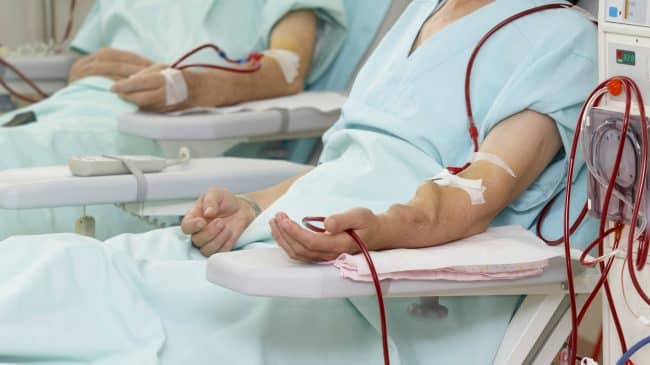California Proposition 8: Regulates Amounts Outpatient Kidney Dialysis Clinics Charge for Dialysis Treatment. Initiative Statute.
Proposition 8 would limit the amount that kidney dialysis clinics can charge for their services to 115 percent of their costs for direct patient care and quality improvement.
Fiscal Impact
The fiscal impact is unclear. Prop. 8 could result in tens of millions in savings or additional costs to state and local government.
Proponents’ Arguments For
Proponents assert that commercial dialysis firms overcharge patients and insurance providers for their services while often failing to provide basic sanitation at their facilities. By restricting the profits these companies can earn, they believe that the quality of dialysis services can be improved while health care costs can be lowered.
Opponents’ Arguments Against
Opponents assert that the price controls in Proposition 8 will cause many individual dialysis facilities to operate at a loss. They believe that companies will react by closing many of their clinics, reducing access to dialysis care, increasing the incidence of missed appointments, and causing more patients to end up in the emergency room.
The Yes on 8 campaign is being funded by the Service Employees International Union, and opponents allege that the measure is a pressure tactic to encourage unionization at dialysis providers. If that is the case, health cost savings are unlikely to materialize as employee compensation rises with a share of the increase going to union dues.
Discussion
Dialysis is an unpleasant, time-consuming process that offers low long-term survival rates. A much better option would be to offer incentives to kidney donors. More kidney donations would reduce the need for dialysis services while providing patients a better quality of life and longer life expectancy. Also, if dialysis care costs upwards of $150,000 annually as proponents of Prop. 8 argue, paying live kidney donors up to $50,000 could generate large savings and improve health care outcomes. But since paid kidney donations are not on the ballot, voters instead have to choose whether the price limitations offered in Proposition 8 will improve outcomes for dialysis patients and save money.
While free market advocates are naturally hostile to price controls, they may have advantages when government spending is involved. Policies that cap rates charged by companies whose products and services are purchased by the government, save money for taxpayers. Unfortunately, Prop. 8 is not such a policy. The measure primarily impacts private insurance providers which usually have reimbursement rates above those offered by Medicare and Medi-Cal. If dialysis firms earn revenues exceeding 115 percent of qualifying costs in any given year, Prop. 8 requires them to rebate the excess to private providers, but not to government programs. Since so much of the high cost of health care is already due to government interventions, Prop. 8 looks like more of the same that will ultimately lead to higher costs.
Voters’ Guide to the 2018 California Ballot Initiatives
The Voters’ Guide offers analysis of each of the 11 ballot propositions certified for the election being held on November 6, 2018.
